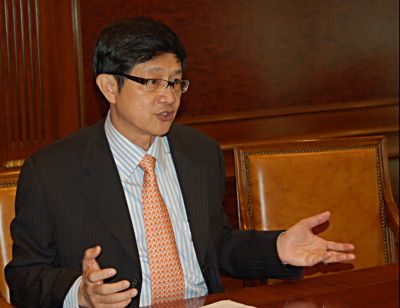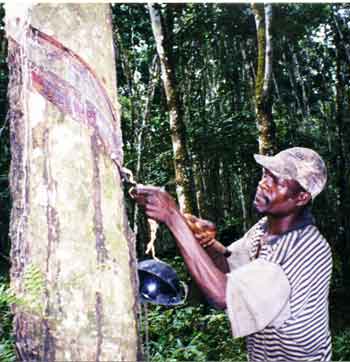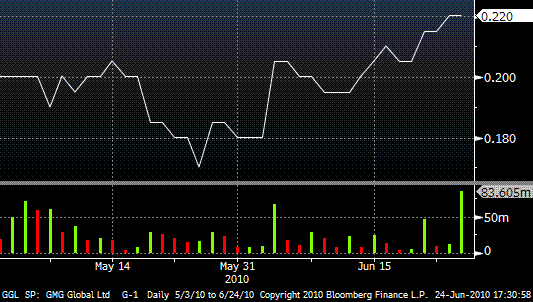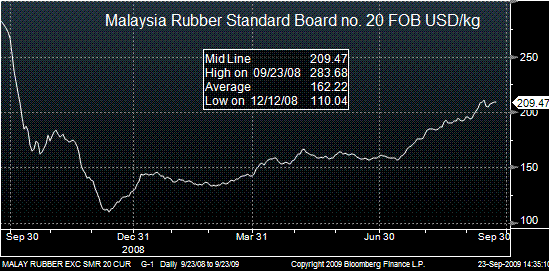
ELSON NG makes three or four trips a year to Africa where the company he heads owns two rubber plantations. From the airport in Cameroon, it’s nearly three hours by car to one of the plantations.
His destination is more than just a vast tract of land with rubber trees. There is also a township of about 26,000 people.
In all, the plantation and township occupy about 40,000 hectares, or about 60% the size of Singapore.
Mr Ng is CEO and president of GMG Global, which is listed on the Singapore Exchange and which owns 90% of the plantation and assets of the township, including the stadium, schools and roads via a state privatisation plan. The Cameroon government owns 10%.
A Singaporean, Mr Ng, 59, said he feels at home there, which he describes as being akin to Singapore in the 1950s and 1960s. “I grew up in the Balestier/Boon Keng area, and remember the days when we had wells for water and kerosene lamps, and the afternoons were long,” he said in an interview with NextInsight yesterday at his office in Raffles Place.
Modern-day amenities, however, are available in GMG's plantation, such as mobile phone coverage, air-conditioned housing for expatriates and management, which includes a Singaporean who is a financial controller.
The one thing about rubber plantations is that they just can’t be set up like a factory. You need lots of land and labour, and you need about seven years before you claim your ‘products’ – that is, latex.
Thus in order to secure faster exposure to rubber plantations, the way to go would be via an acquisition. That’s what Sinochem International (Overseas) has just done through a voluntary conditional cash partial offer for 51% of the issued and paid-up shares of GMG Global.

In September, Sinochem completed the acquisition, paying about $268 million, or 26 cents a share, for the stake.
GMG is involved in the planting, growing, tapping, processing and marketing of natural rubber, and owns and operates plantations in Cameroon and Ivory Coast. It also has rubber processing facilities in Ivory Coast and South Kalimantan, Indonesia.
“About a year ago, Sinochem approached us to explore the potential of a partnership,” recalled Mr Ng. “We welcomed it as a strong partner who can help fulfill our long-term vision. China is our future growth story.”
There were three other potential suitors from other countries around that time but Sinochem was favoured for its strong distribution network in China as well as rubber processing plants. Sinochem also had financial strength.
Sinochem, a $3.6 billon company
Listed on the Shanghai Stock Exchange, it specialises in the trading, manufacturing and transportation of chemicals, plastics, rubbers and metallurgy products.
In 2007, Sinochem had net revenues of $3.9 billion, net income of $153 million and net assets of $1.3 billion. As at 9 July 2008, when it made the partial cash offer for GMG, it had a market capitalisation of $3.6 billion.
GMG had net revenues of $166.4 million in 2007 and net profit of $22.1 million. Net assets amounted to $309.8 million. As at 9 July 2008, it had a market capitalisation of $455 million.
In the first nine months of 2008, GMG’s turnover jumped 70% to $184.1 million on higher rubber prices and higher tonnage of rubber sold. Net profit soared 131% to $32.7 million.
Mr Ng pointed out that Sinochem and GMG will leverage on each other’s core competencies of distribution and trading, and plantation asset manager, respectively.

GMG is maintaining its sales to these players and markets and has nothing leftover to sell to China.
When China can become a big market for GMG is yet to be determined. Careful not to prematurely hint of any rubber sale to Sinochem, Mr Elson said such a interested party transaction would need to secure the required regulatory approval first.
For GMG to supply to China, it is looking for new sources of rubber through acquiring plantations and processing plants, or building new plants, in Southeast Asia and Africa.
In 2007, GMG had attempted to buy two rubber plantations in Asia and Africa but did not succeed because of price and operational considerations.
The current global financial crisis may yet throw up opportunities for GMG to make acquisitions, said Mr Ng.
In the meantime, three Sinochem executives have come on board the company: non-executive chairman Xian Ming and a non-executive director and an executive director. A three-year strategy is being planned, and will be unveiled in due course.
”We are optimistic about the long-term prospect of our industry,” said Mr Ng, replying to a question on where he sees a bottom in rubber prices which have plunged in recent months along with prices of other commodities.
”Just take China’s current population and forecast a certain growth in the population. Analyse the size of the population below a certain income level. Add in GDP growth over 20-30 years and you ask yourself how many cars are likely to be needed, how much rubber is required.”
Recent story: GMG taps on Africa's vast resources




